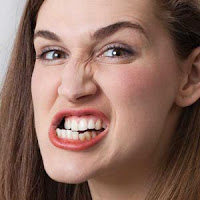Should I Pull My Child's Tooth Out?
One of the biggest joys a child can have is losing one of their teeth, and rightfully so! It is a sign they are growing up and in a new stage of life. In their excitement, a child’s first reaction might be to pull on the tooth until it comes out. However, unlike the cartoons, this is not always the best scenario and can cause harm. However, there are situations where a baby tooth might need assistance in coming loose, which is why seeing a dentist at a young age is so important.
A primary or "baby" tooth falls out due to its roots being dissolved as a permanent tooth erupts. Children’s teeth fall out in the order they came in first to last, with the lower teeth the first to go around age six. If a tooth is loose the best thing you can do for it is to leave it alone. The tooth is not ready to come out (which is why it is still loose in the first place) and by pulling it out unnecessarily, it can cause the nerves that have not yet dissolved severe and unneeded pain. If the tooth is really bothering the child, visit your dentist and have it checked out. The dentist will be able to see whether or not the tooth is “ready” to come out and may be able to wiggle it free. The American Dental Association recommends that a child see a dentist starting at age three, in order for the dentist to examine incoming teeth.
Another reason not to pull a primary tooth out too early is that the permanent teeth rely heavily on the primary teeth’s presence. The primary teeth and permanent teeth work in unison so that when one leaves the other is right behind. This way, the permanent teeth will not shift as they are erupting. If they do, it can cause the permanent teeth to become crooked, which will cause more damage to the child and might lead to further complications. However, there is a concern called “over-retained primary teeth” where the teeth do not come out when they should. This can become problematic as the permanent tooth behind will not be able to erupt, therefore, the primary tooth may need to be extracted. By scheduling your bi-annual dental exam, your dentist will be able to tell if your child’s teeth are falling out on their appropriate schedule, in order to avoid over-retainment.
If you are ever unsure about the status of your child’s tooth it is best to err on the side of caution and have your dentist check the child’s loose tooth. Having a timely dental check-up will also allow the dentist to monitor the development of your child’s teeth. If you have any questions, feel free to call our office or visit our website for more information.

Comments
Post a Comment